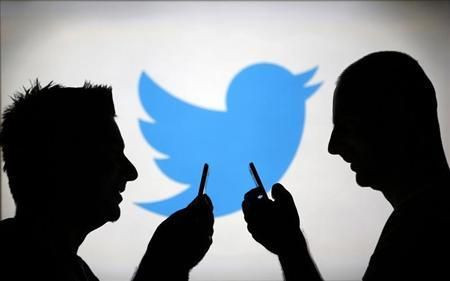Twitter Harassment? Charles C. Johnson Boasts Of Doxing ‘Jackie,’ Alleged UVA Rape Victim

Less than a week after it introduced new tools to combat online harassment, Twitter Inc. is once again being criticized for inaction as one of its users spreads unconfirmed information about the victim of an alleged gang rape. Charles C. Johnson, a conservative blogger, claims to have revealed personal details about “Jackie,” the University of Virginia student at the center of Rolling Stone magazine’s bombshell November article “A Rape on Campus,” which spiraled out of control last week in the wake of a number of reported discrepancies in the victim’s story.
Johnson, who is calling the alleged rape a “hoax,” first posted the victim’s full name to his website GotNews.com. He then took to Twitter to threaten Jackie with spilling more details if she didn’t “tell the truth” about the alleged attack. He also spread a hashtag of her full name.
I'm giving Jackie until later tonight to tell the truth and then I'm going to start revealing everything about her past.
- Charles C. Johnson (@ChuckCJohnson) Dec. 7, 2014Hours later more details were posted to GotNews, including screen shots of what Johnson called Jackie’s “rape-obsessed” Pinterest page. In the face of tremendous backlash from other Twitter users, Johnson gleefully threatened to post even more information, while using the attention as an opportunity to ask visitors to donate to his website.
Countless Twitter users, meanwhile, stood by flabbergasted as their appeals to have Johnson booted from the social network went unanswered. Some said they used Twitter’s new user-friendly reporting tools, which supposedly make it easier to alert the company about harassment.
A number of users also tweeted at Twitter’s “Trust and Safety” team begging for a response, wondering why Johnson’s actions wouldn’t get him banned. In addition to prohibiting targeted harassment, Twitter’s terms of service expressly forbid posting someone’s private information without his or her permission -- known as “doxing” in Internet speak.
Dear @twitter @Support: please suspend @ChuckCJohnson for revealing a high profile rape survivor's full name.
- Steph Herold (@StephHerold) Dec. 8, 2014.@support @safety user @chuckcjohnson doxxed an alleged rape victim. why is he still allowed on Twitter?
- Happy Holzerdays (@tholzerman) Dec. 8, 2014hey @twitter @Support can you ban @ChuckCJohnson forever and prevent him from using your website to harass more people
- chris kringle (@randlechris) Dec. 7, 2014The appeals to ban Johnson continued well into Monday afternoon -- as did criticism of Johnson on Jezebel, the Washington Post and elsewhere -- but it’s unclear if anyone at Twitter is listening. The company did not respond Monday to repeated requests for comment.
Twitter has long been criticized by users who say it does not take harassment seriously, particularly harassment directed at women. Last week it rolled out a new set of reporting tools, but those came only after a number of incidents involving the harassment of celebrities, including Zelda Williams, daughter of the late Robin Williams, who in August was temporarily hounded off Twitter by "trolls" who made vicious jokes about her father’s suicide.
Most news outlets have policies of not naming victims of sexual assaults. So far Jackie’s real name has not been confirmed by either Rolling Stone or Sabrina Rubin Erdely, the journalist who wrote the piece. Either Johnson named the wrong person, in which case he has subjected a random individual to Internet vigilantism, or he named the right person, in which case he violated conventional journalistic ethics.
Whatever the case, there are no winners here.
Christopher Zara is a senior writer who covers media and culture. Got a news tip? Email me here. Follow me on Twitter @christopherzara.
© Copyright IBTimes 2025. All rights reserved.





















